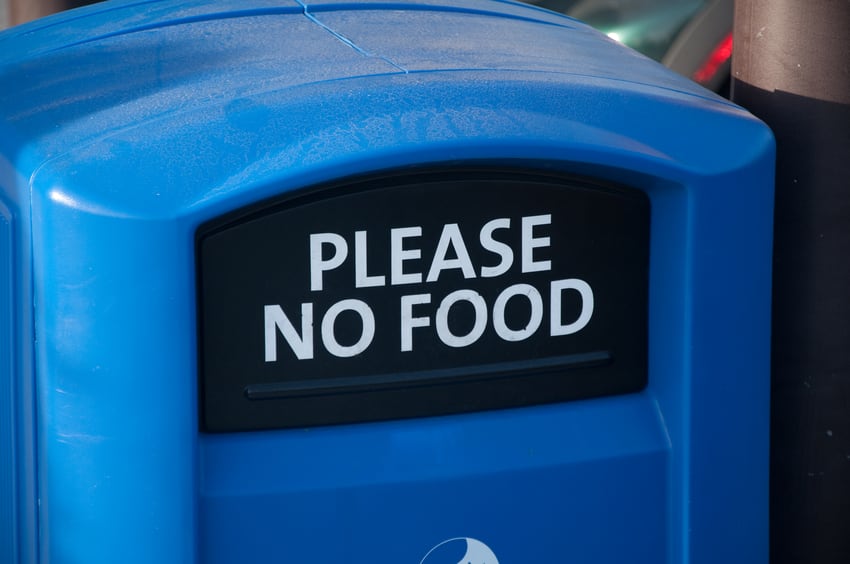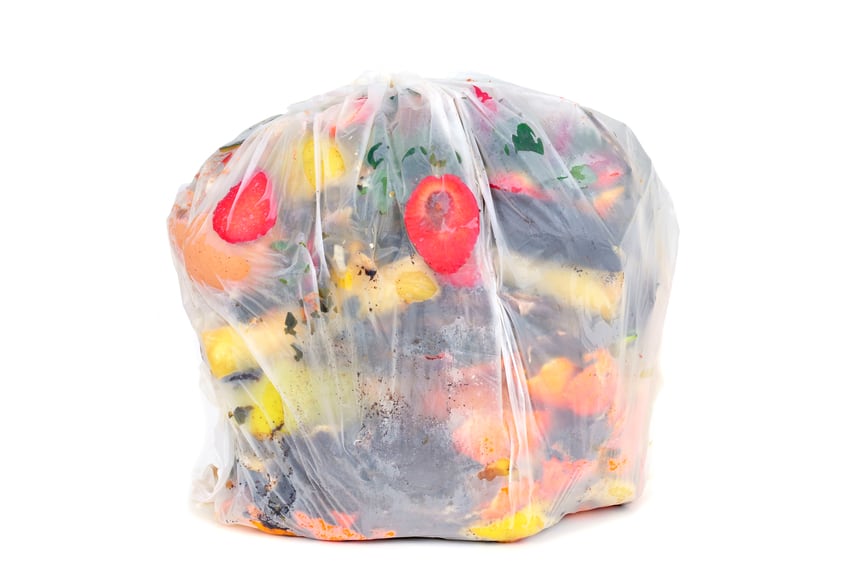Currently, around one third of the food produced in the world for human consumption every year – approximately 1.3bn tonnes – is lost or wasted. In Denmark, almost 2,000 tonnes of food waste is produced daily. That translates to around 700,000 tonnes annually wasted along the food value chain, from farm to fork.
The campaign, Denmark Mod Madspild – or Denmark Against Food Waste – is in line with the United Nations’ Sustainable Development Goal 12.3, which aims to bring food waste down globally by around one-half.
“By reducing this [food waste] figure, Denmark will be able to improve climate action through lower CO2 emissions, ensure better use of the Earth's resources while contributing positively to the Danish economy,” Denmark Mod Madspild said in its mission statement.
Mobilising whole-chain support
Denmark Mod Madspild aims to encourage collective action on food waste up and down the supply chain.
Where is food wasted in Denmark?
- According to official figures, the service sector accounts for annual food waste of 227,000 tonnes, of which 163,000 tons are from retail, 29,000 tonnes from hotels and restaurants and 31,000 tons from institutions and large kitchens.
- Food waste from primary production amounts to 100,000 tonnes per year.
- Household food waste amounts to 247,000 tonnes per year.
The initiative includes Denmark’s largest food retailer, Salling Group, as well as food processors such as Nestlé, Unilever, Arla and HK Scan. Denmark’s largest association against food waste, Stop Wasting Food, and Danish food redistribution organisation, The Food Bank, are also backing the effort.
Participating companies have all committed to halving their total food waste by 2030. Significantly, the companies have all agreed to share food waste data.
The first step of this process has seen participants commit to measuring and publishing progress in food waste once a year. Data will be measured according to the same standards, Denmark Mod Madspild stressed.
Selina Juul, founder and chairman of Stop Wasting Food, said that this aspect of the agreement was particularly significant. “Denmark Mod Madspild is the first initiative in the country to gather food actors to publish their figures on food waste. And what can be measured can also be reduced. It is really positive that the fight against food waste not only favours consumers, but has also begun to focus on food-producing actors and retailers.
“It is important to set up national targets for halving food waste, in line with the EU and UN goals - something our organization is already involved in at international level.”
In addition to manufacturers and retailers, Denmark Mod Madspild also wants to support consumer engagement and address food waste at a household level. Denmark Mod Madspild intends to galvanise support among Danish consumers, providing a platform for them to share experiences and get advice on how to waste less food.
"This is an ambitious initiative and I am proud that we and a number of the country's largest companies will work closely together to solve a common challenge. It is going to require openness, courage and a big [effort] to halve our food waste. But there is no doubt that we, together with our suppliers, who have joined other companies and, in particular, consumers, can deliver the crucial push towards achieving our ambitious goals," said Per Bank, CEO of Salling, which operates the chains Føtex, Netto and Bilka.
Denmark: ‘A pioneer of ideas and methods’
Commenting on the initiative, Nestlé Denmark country manager Henriette Kjær Schmidt stressed that the efforts must be viewed in the context of broader questions around resource efficiency and population growth.
"We see the fight against food waste as one of the most important issues at all. Food waste is unfortunately much more than a waste of precious food. It also involves waste of labour, natural resources and energy for example production and transport,” Kjær Schmidt said.
“Additionally, there will be approximately three billion more [people] in the world by 2050. Therefore, much more must be done against food waste both now and in the future.”
Reducing food losses and waste has been recognised as a key objective to feed the growing global population. By 2050 the world population will reach 9bn. Food production will need to increase by 70% to meet this demand.
Kjær Schmidt said the initiative will help place Denmark at the forefront of reducing food waste. “We look forward to Denmark becoming the pioneer of ideas and methods for reducing food waste, and we can do that through Denmark Mod Madspild.”
Who’s signed up?
• Salling Group
• Alfred Pedersen & Søn
• Arla Foods
• Carletti
• HK Scan
• Kohberg Bakery Group
• Løgismose Meyers
• Naturmælk
• Nestlé
• Peter Larsen Coffee
• Stryhns
• Unilever
• Stop Wasting Food
• Food Bank
Businesses who want to join up must commit to halving food waste by 2030 and reporting annually on food waste levels.


